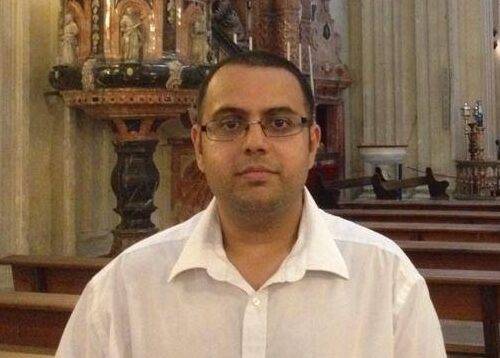A group of men and women have gathered with an instructor to partake in a religious ceremony which, aside from worship, represents something broader in their lives: how to take the experiences from the session and apply them to everyday life. “I was in another world during Fana [a mystical state of being],” one woman told Seema Golestaneh during a session of dhikr [remembrance of God]. “I have enough energy for the whole week now.”
Golestaneh’s new book, Unknowing and the Everyday: Sufism and Knowledge in Iran, explores Persian-speaking Sufi movements in contemporary Iran through the lives of practitioners from Sufi masters to students. A central question being explored in the book is how concepts like knowledge and what we don’t know translate into both Sufi practice and general life situations. More importantly, how does engaging with Sufi practice change or impact the way people deal with life’s uncertainties?
The book is part of a growing field of study of the anthropology of knowledge in the Islamic Republic of Iran. Typically, questions about knowledge have been dealt with philosophically, and have tended to focus solely on rational arguments about what we know and don’t know and the meaning of it all. The anthropology of knowledge goes beyond the rational debates and seeks to understand the lived realities of these debates through people and wider society. How do ordinary people make sense of these issues and how do they impact on their behaviour and inform their beliefs about the world?
Golestaneh’s book draws comparisons with Alireza Doostdar’s classic The Iranian Metaphysicals, which explore some of the same themes as the Unknowing and the Everyday…, but while the two make great reading companions, it would be a mistake to think that they are the same. The Iranian Metaphysicals deals with new age movements, magic, Shia worship and the attempt to expand the boundaries of rational and scientific knowledge to traditional mystical practices in Iran. The Unknowing and the Everyday… not only focuses on Sufi movements, but also on how these movements deal with uncertainty and embrace the end of our ability to know things.
REVIEW >>> Inventing Laziness: The Culture of Productivity in Late Ottoman Society
Sufism in Iran is tied deeply to the culture, history and politics of the country. Consider Erfan, which for Sufis has the meaning of knowledge of mysticism, whereas for most Iranians who are non-Sufis, “Erfan does not mean mystical knowledge, but refers primarily to a distinctly Iranian literary tradition, namely the poetry of a canon of the medieval Persian-speaking poets Hafez, Sa’adi, Rumi and Ferdowsi.”
The author makes the point that most Iranians would not connect Erfan to Sufism and would instead see it as a particular brand of Iranian literature, whereas a religious seminary student in Iran would not only make the connection to Sufism, but would also make the association with esoteric approaches. Iranian states and dynasties have encouraged the study of Erfan from the Safavids to Ayatollah Khomeini. However, as the Unknowing and the Everyday… lays out clearly, Sufi movements in the Islamic Republic, while not totally suppressed, can find themselves at the end of harsh repressive measures meted out by the local authorities.
An interesting example explored in the book is the 2009 destruction of a historic Sufi meeting place, a lodge on the east side of the Takhteh-Foulad Cemetery in Isfahan. The cemetery houses the shrine of a great sheikh and poet, Nasser Ali, and a lodge where people go to pay their respects to the sheikh and perform Friday prayers. In late 2008, members of the Sufi order found a demolition notice posted on the door of the lodge. The authorities claimed that it was in disrepair and the area was undergoing general upgrading, spurred on by the fact that the Organisation of Islamic Cooperation selected Isfahan as the cultural capital of the Islamic World in 2006.
The Sufis were distraught. “Two hundred years,” they pointed out, “two hundred years this building has stood here in this very spot, and now it is to be destroyed.” The gentrification of Isfahan which included the destruction of a living heritage site as a result of an international designation intended to highlight the city’s heritage says a lot about societal tension in Iran. There is a sense that Sufi worship and prayers in a cemetery are embarrassing for a regime which seeks to cultivate a specific image of itself.
In the end the shrine was spared but the Sufi lodge was not. While this was deeply distressing, the Sufi leaders responded by emphasising that the lodge was just a building and their followers should forget it. Indeed, the act of forgetting did not so much mean that they should stop thinking about the building, but that they should stop thinking about the building as a sacred space; it was now merely a material entity and should be left behind. The importance of forgetting as emphasised by Sufi leaders seems to run counter to the regime’s tendency to memorialise things it regards as important. This is an interesting point that the book explores.
The Unknowing and the Everyday… is an interesting scholarly study of Sufi movements in Iran and an interjection in the socio-politics of memory. The book provides some vivid insight into what it means to be a Sufi practitioner in Iran today, and what it looks like for different groups and individuals. It also invites comparisons with work being done in and about other countries, and it will surely enter into conversation with them.









